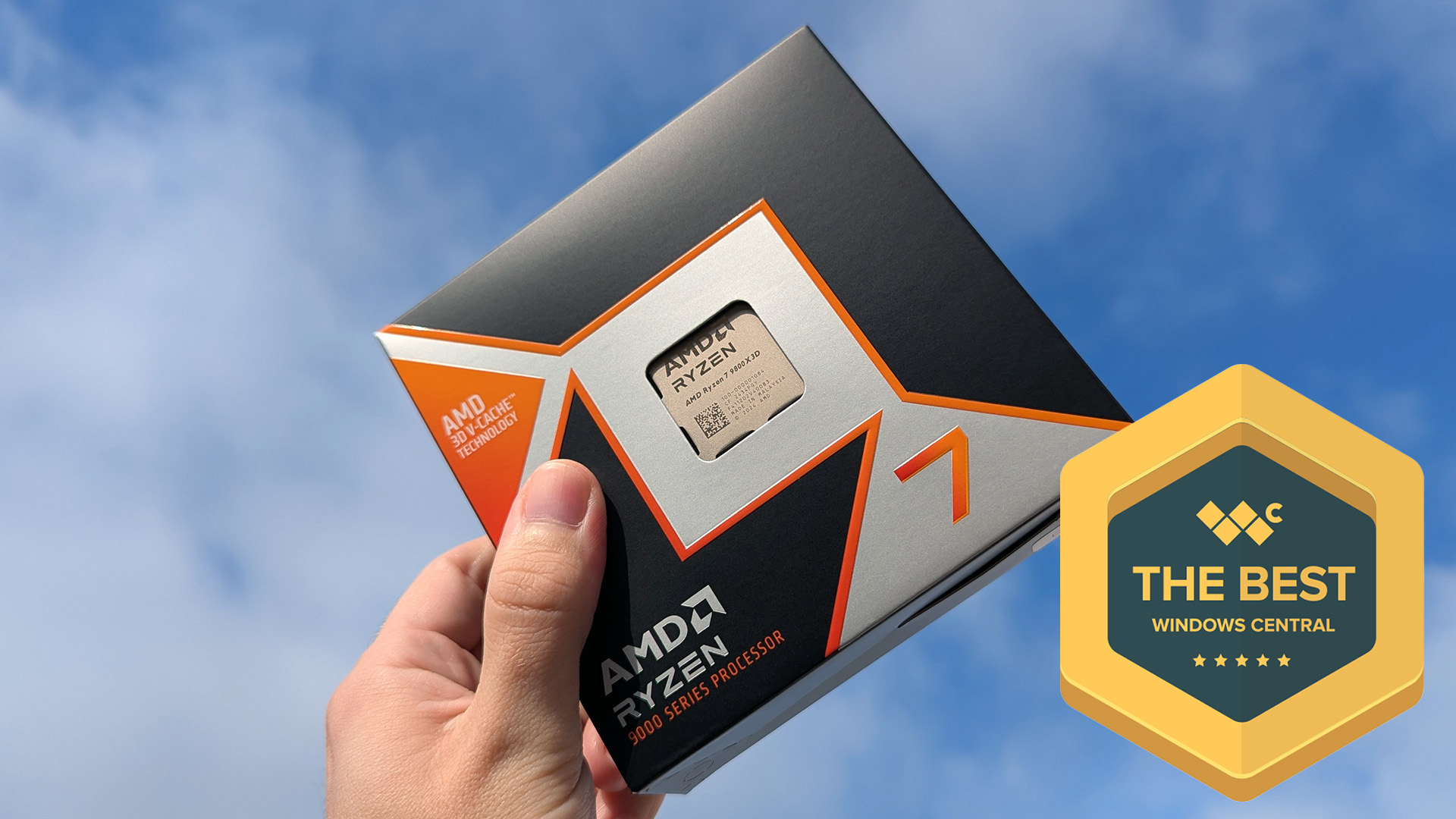
I can tell you that extra cores and threads benefit raw productivity performance, but I'll always feel the temptation of a gaming-centric CPU that delivers boosted framerates, something AMD has repeatedly delivered with its -X3D chips.
It's a simple fact that consistently proves itself with each processor generation: gamers want the best performance for their money and will take any desktop boosts as a convenient side effect.
AMD has remained in the top-seller spot for most CPU retailers, with the previous-generation Ryzen 7 7800X3D sitting pretty as the gaming champion since its release.
If that were ever to change, it'd be with a direct successor, and that's the Ryzen 7 9800X3D, here at last.
Ryzen 7 9800X3D: Price, availability, and specs
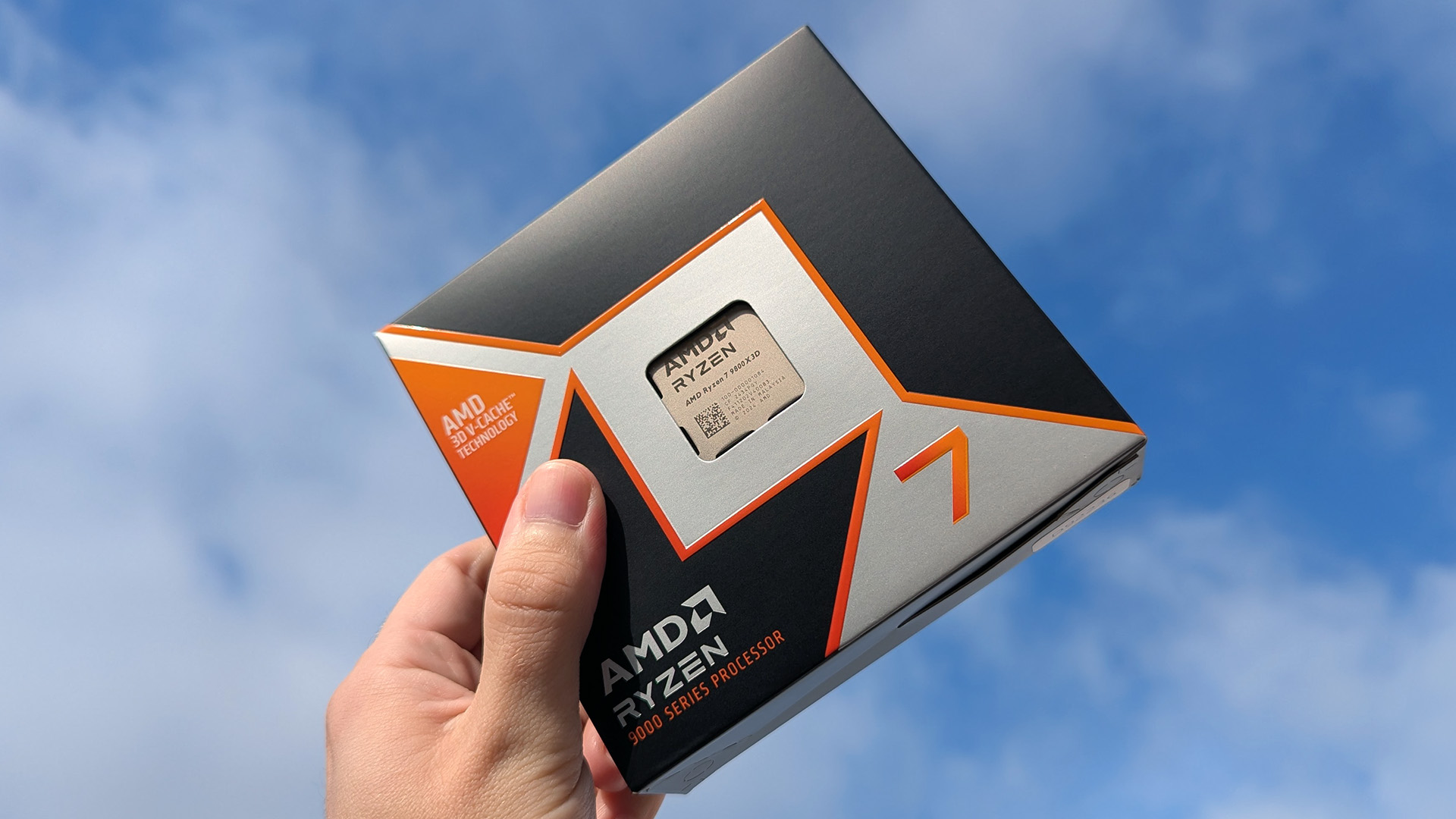
At its launch, the Ryzen 7 9800X3D is the only Zen 5 processor in AMD's Ryzen 9000X3D range. More variants, presumably (but so far unconfirmed) a 9900X3D and 9950X3D, are expected to follow.
Price: TBD ($479 MSRP) at Newegg
Release: November 7, 2024
Cores: 8
Threads: 16
Base clock: 4.7GHz
Max boost: Up to 5.2GHz
L3 cache: 96MB
Base TDP: 120W
The Ryzen 7 9800X3D is an 8-core, 16-thread APU (SoC) running at a 120W base TDP like its predecessor, the Ryzen 7 7800X3D. Its specs are also similar to AMD's Ryzen 7 9700X chip, which runs at a lower TDP with a reduced L3 cache, focused on productivity rather than gaming.
Officially launching with a $479 MSRP, which is $30 more expensive than the $449 Ryzen 7 7800X3D it replaces, actual store listings come relatively close with some minor inflation.
AMD has moved from a 4nm process to 5nm via TSMC's foundry but remains on the same AM5 socket with compatible 9000X3D motherboards and supports the same CPU coolers as its previous-gen Zen 4 (7000 Series) chips.
Upgrading from a Ryzen 7000X3D chip would be a straightforward process for enthusiasts. Still, it wouldn't provide as much of a performance leap as it would for those using a Ryzen 7 5800X3D or similar AM4 variants using now-incompatible DDR4 memory modules (RAM) as AM5 requires DDR5.
Having previously tested AMD's Ryzen 7 7800X3D and Ryzen 8000 Series processors like the Ryzen 5 8600G and Ryzen 7 8700G, I already had access to a compatible AM5-socket motherboard with the ASUS ROG STRIX B650-A Gaming WiFi. However, AMD provided all-new samples to ensure compatibility with the latest BIOS software and EXPO-compatible RAM running at 6000MHz. Arctic sent its Liquid Freezer III 360mm AIO to help test a separate processor, but it still offers the best cooling performance here.
Testing hardware
Ryzen 7 9800X3D: CPU benchmarks
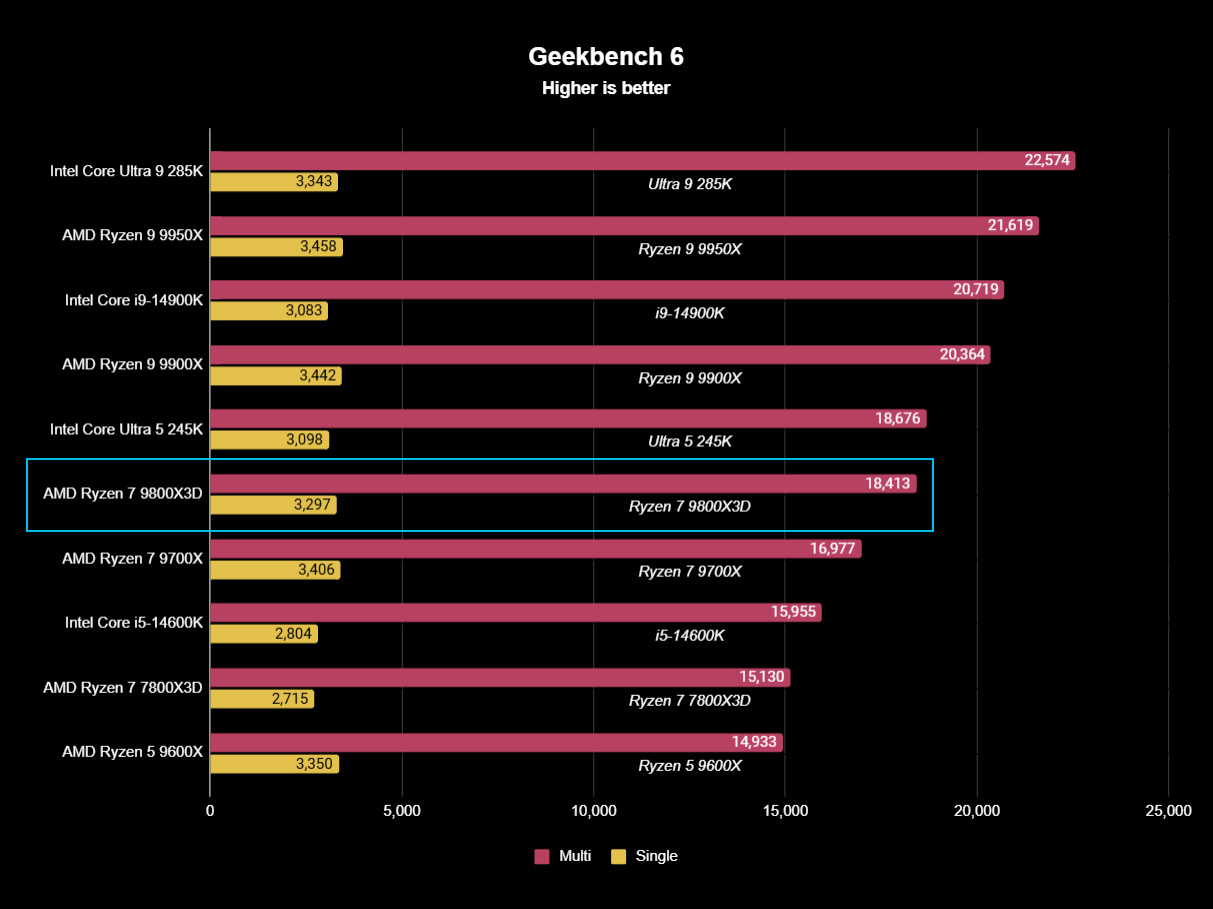
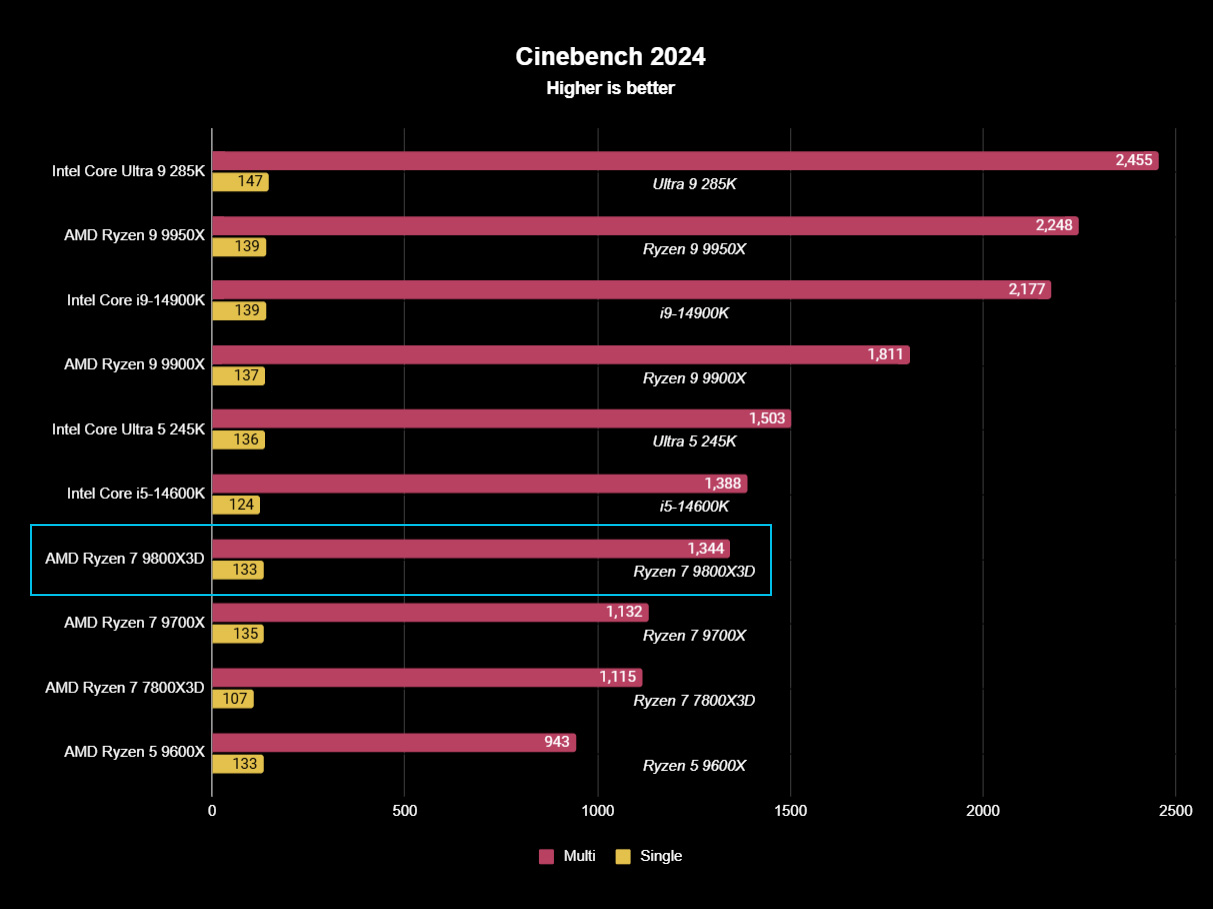
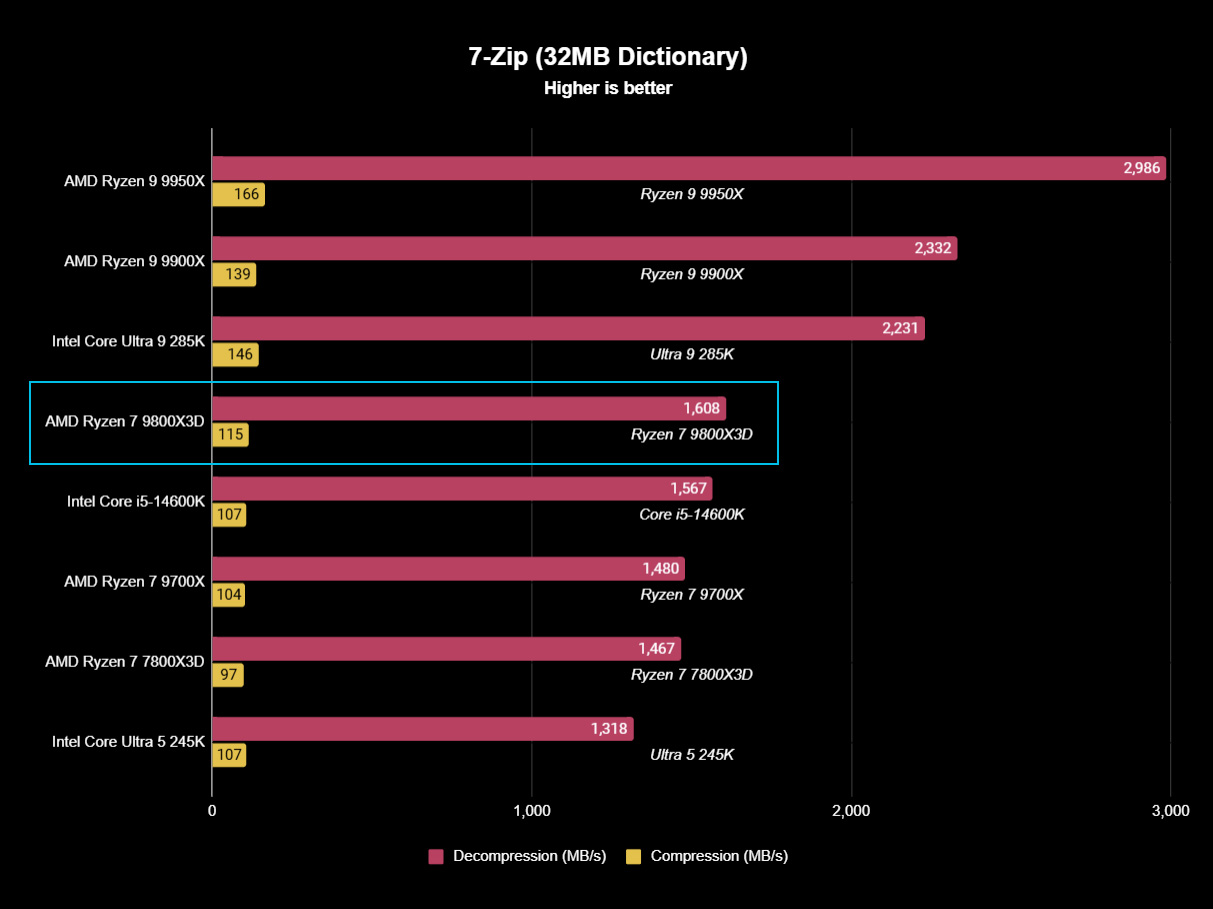
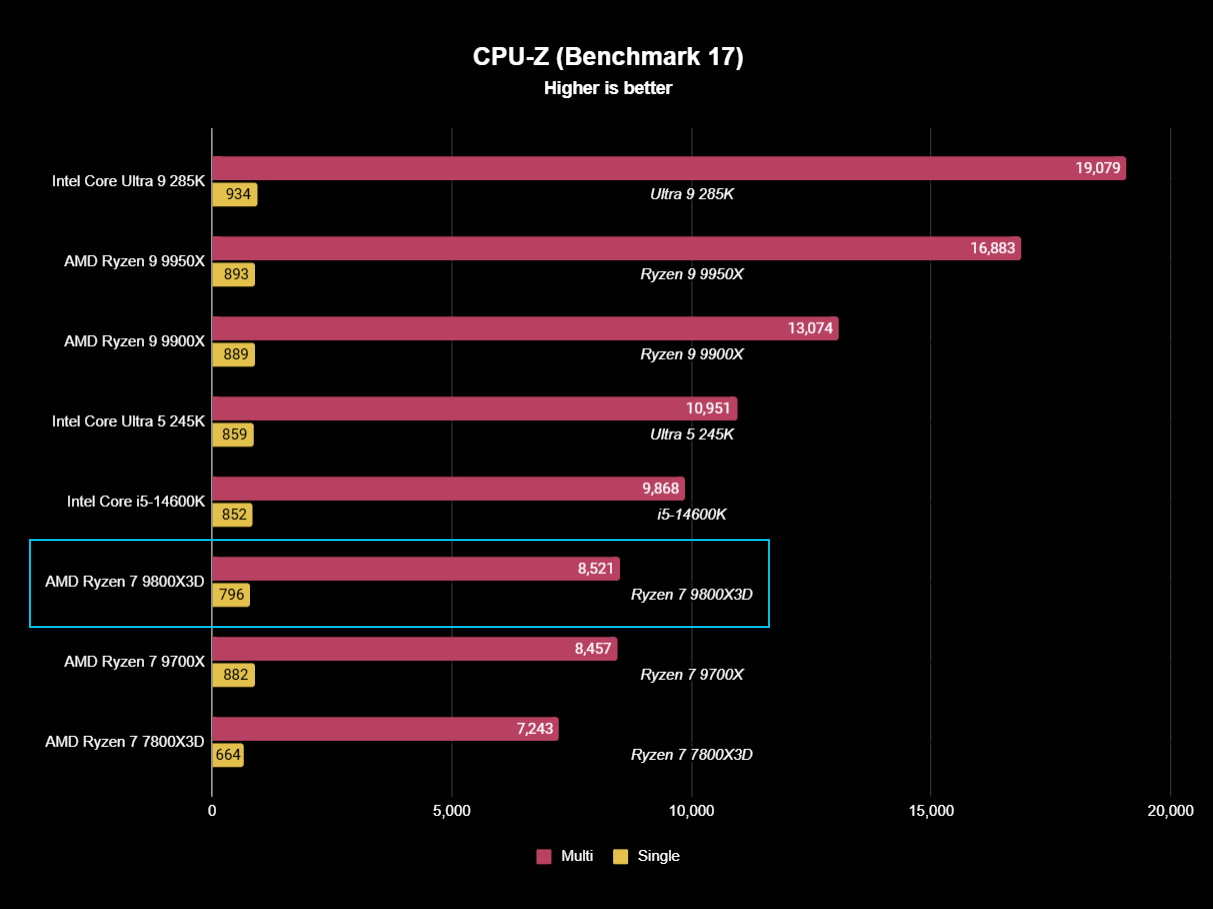
No matter what a processor was designed for, it always passes my usual gamut of synthetic benchmarks that test single-core and multi-core performance in various productivity tasks. As fun as it would be to skip right to the gaming tests, it's important to see where the Ryzen 7 9800X3D ranks among its peers in burst processing and longer, sustained stress tests.
For burst processing tests in Geekbench 6, the 9800X3D scores above its lower-powered non-X3D sibling, the $359 Ryzen 7 9700X, in multi-core performance but below in single-core equivalents.
In synthetic productivity benchmarks, the Ryzen 7 9800X3D performed around 21-22% faster than its predecessor, the 7800X3D.
Of particular note is how far ahead Intel's $589 Core Ultra 9 285K pulls in multi-core tests, as by design, but there isn't much of a gap in the single-core category — remember this when I compare gaming performance next. Otherwise, there's about a 22% generational burst performance improvement over AMD's predecessor, the Ryzen 7 7800X3D.
Sustained stress tests with Cinebench 2024 show a similar story, with the 9800X3D scoring slightly ahead of the Ryzen 7 9700X as before while creeping on the heels of Intel's $309 Core Ultra 5 245K. In the long run, single-core performance falls in favor of Intel, with more of a lead gained by the Core Ultra 9 285K as it once again places miles ahead in multi-core equivalents, dominating productivity by a colossal degree. Again, a 21% generational sustained performance over the 7800X3D matches the burst tests.
Ryzen 7 9800X3D: Gaming benchmarks
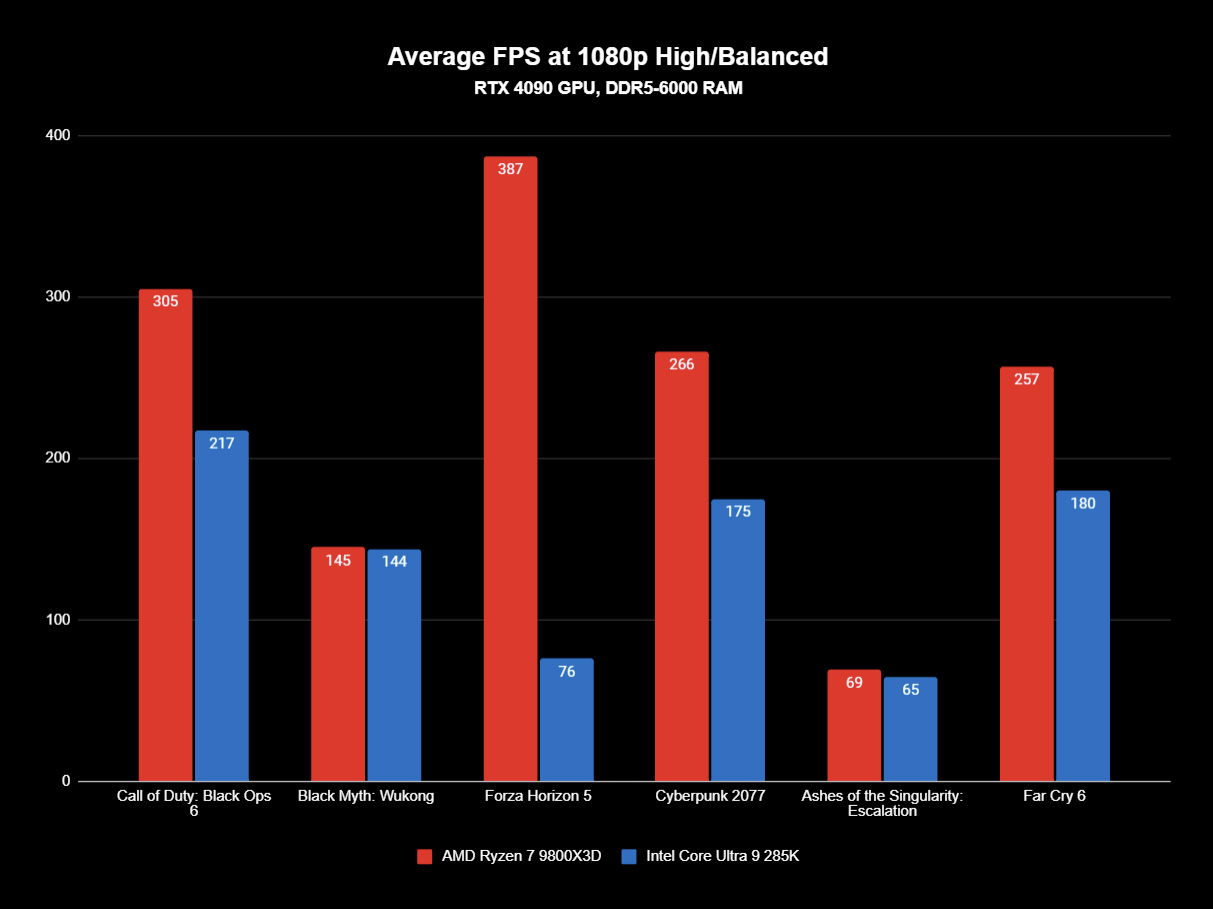
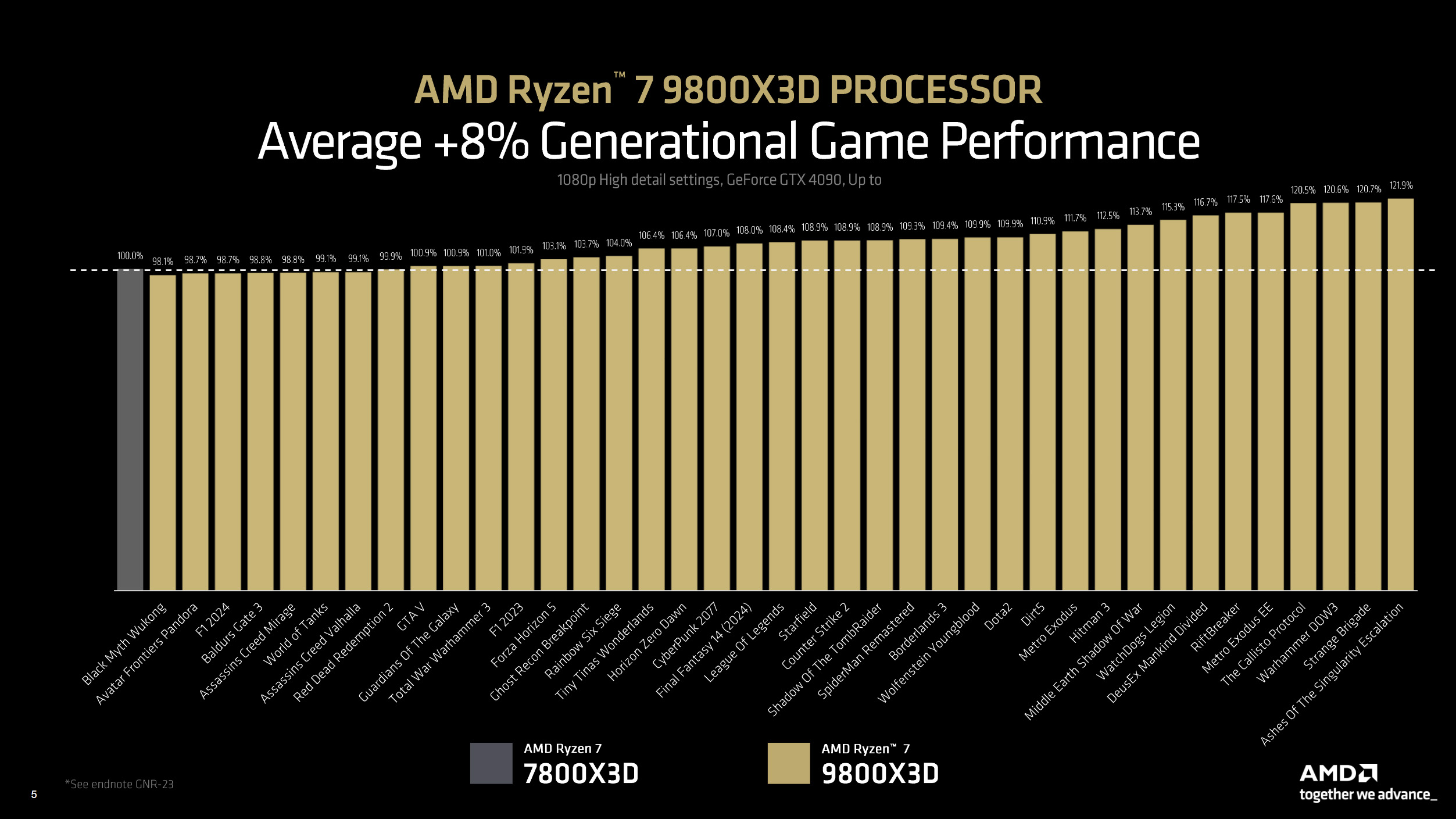
In its official documentation for the Ryzen 7 9800X3D, AMD touts an average 8% performance improvement in gaming compared to the previous-gen Ryzen 7 7800X3D. The amount depends on a range of engine-specific quirks that determine how CPU-bound or GPU-bound a title can be, though the percentage gap usually increases over time with post-launch driver updates. Nevertheless, the 7800X3D, until now, was the best gaming CPU available, so these improvements are no real surprise — so, it's far more interesting to compare the 9800X3D against Intel's top-end CPU: the Core Ultra 9 285K.
Matching estimations, Black Myth: Wukong scores almost identically on AMD's Ryzen 7 9800X3D and Intel's Core Ultra 9 285K, while the "121.9%" gains promised in the CPU-centric title Ashes of the Singularity: Escalation didn't manifest in my testing, sticking around 6% instead. While not much of a surprise given its excellent performance on practically any hardware, Forza Horizon 5 scores an outrageous average of 387 FPS, which is perfect for anyone who uses those 360Hz 1080p gaming monitors. However, something clearly is bugged on Intel's side, so I'm skipping the implied percentage gain for Forza.
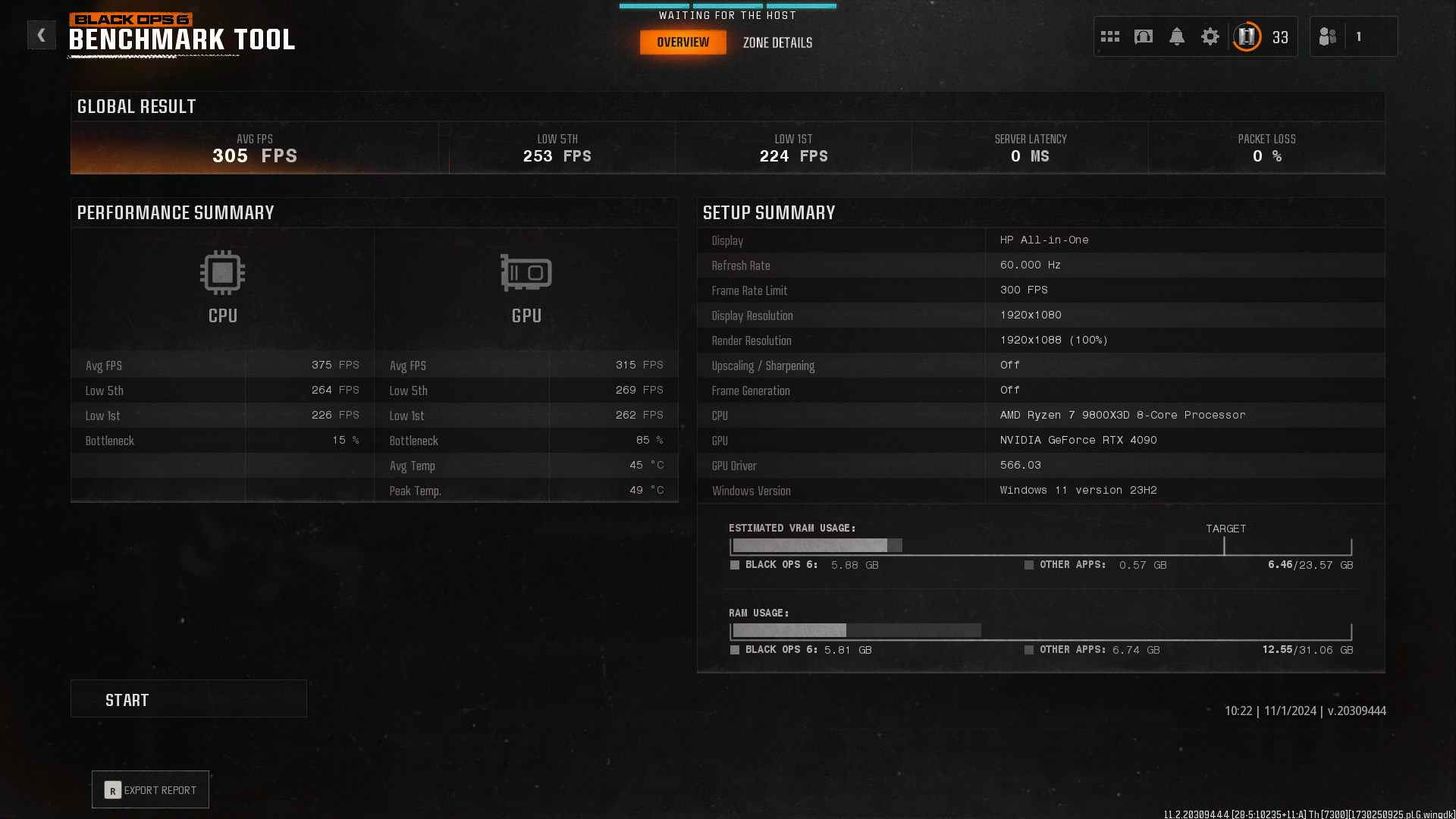
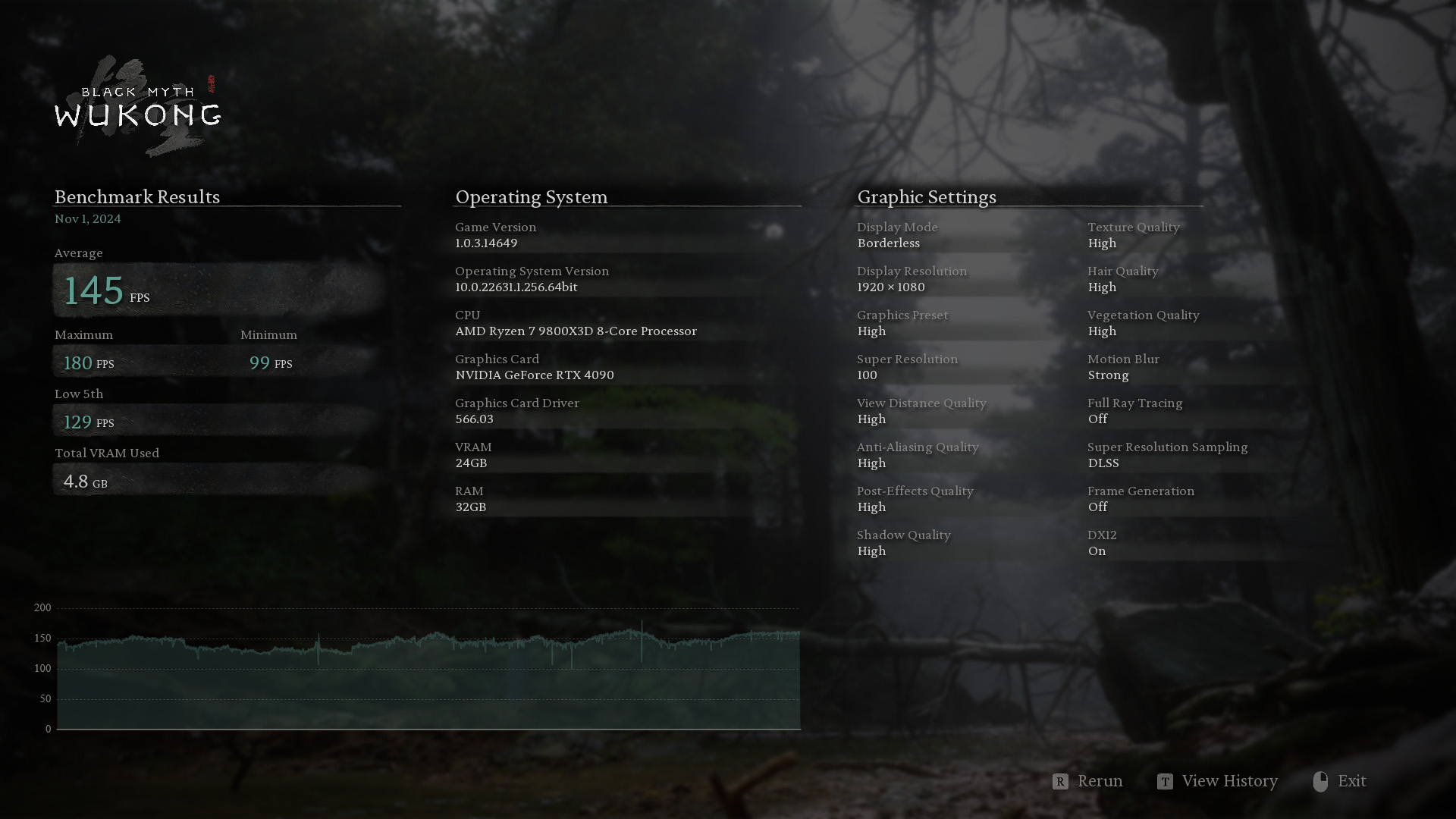
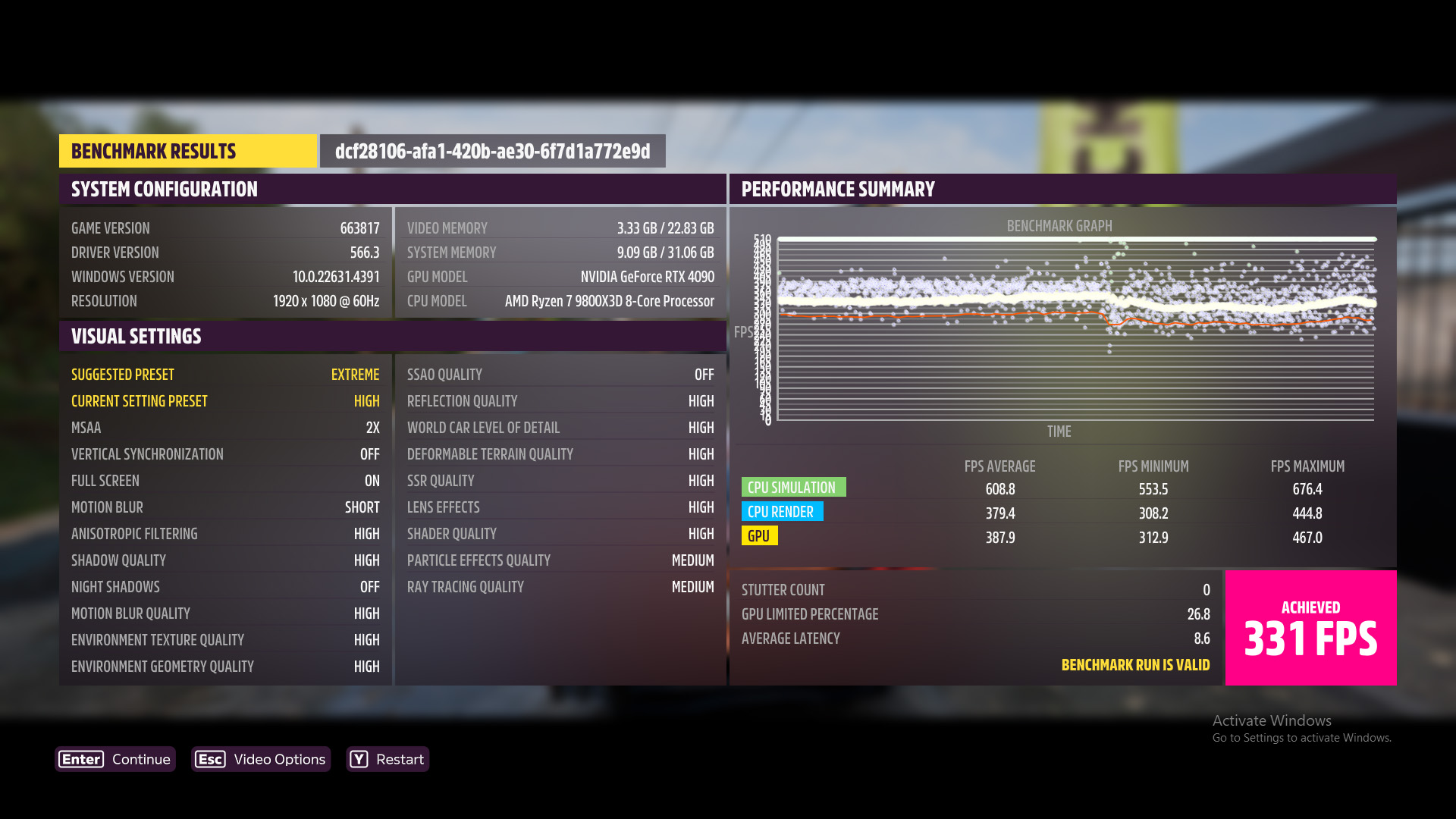
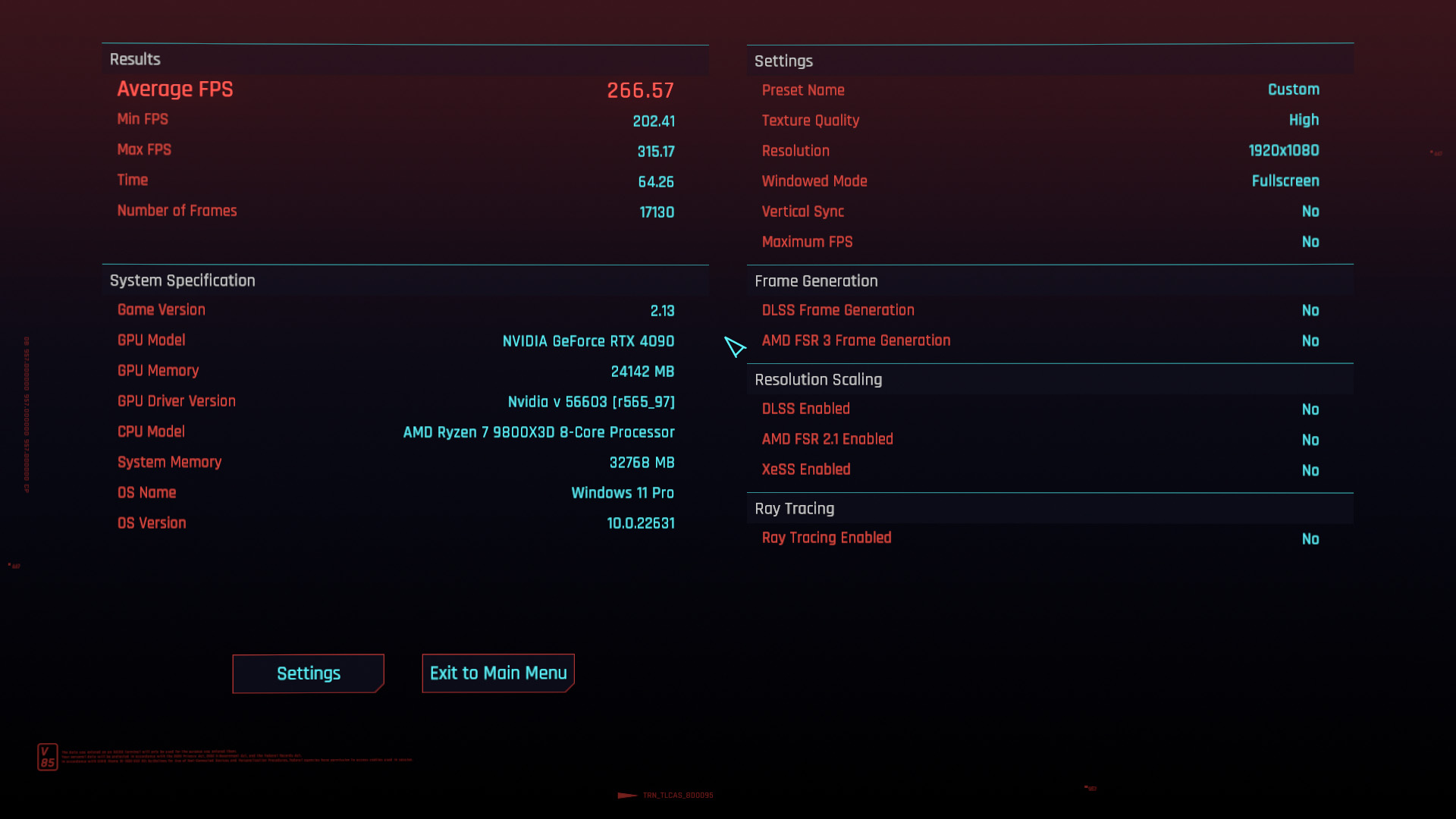
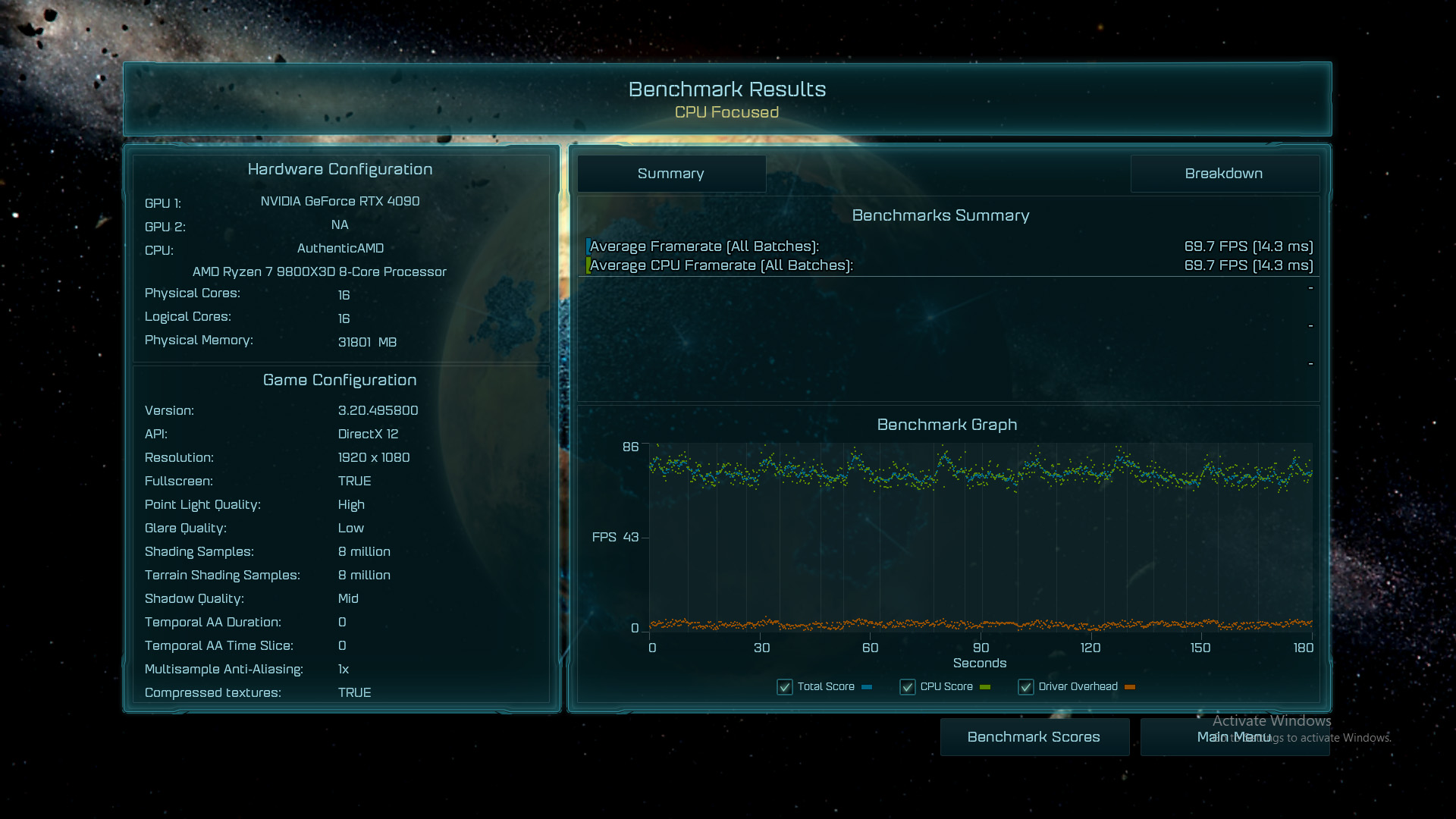
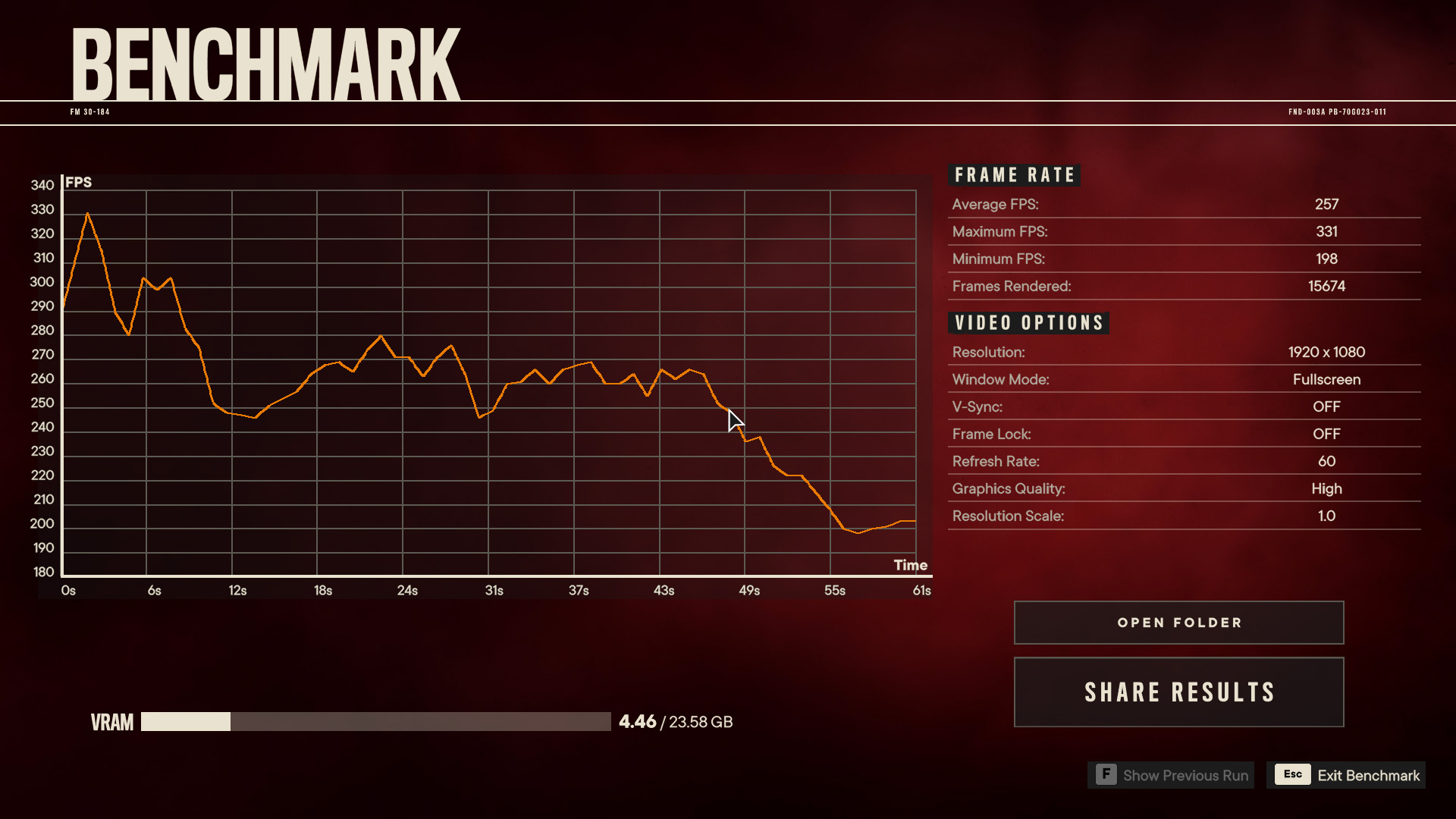
Moving from a disastrous launch to a patched-up marvel, Cyberpunk 2077 sees a 52% performance increase on the 9800X3D over Intel's Core Ultra 9 285K, proving far better of a pairing to NVIDIA's current high-end GeForce RTX 4090 graphics card. Far Cry 6 bumps up performance by 43% with the same GPU and DDR5-6000 RAM pairing, and the latest blockbuster Call of Duty entry enjoys a 41% lead as the 9800X3D earns extra frames in Black Ops 6.
So, while I'm testing a tighter scope of popular AAA titles on PC, I still saw around a 36% performance increase in gaming with the Ryzen 7 9800X3D. Naturally, my number would be lower if I only tested games closer to the 100% to 110% range of AMD's generational game performance chart, but seeing visually-rich megahits like Call of Duty and Cyberpunk 2077 score such significant increases is reassuring for the performance of a brand-new processor at day one.
Is the Ryzen 7 9800X3D good for gaming?

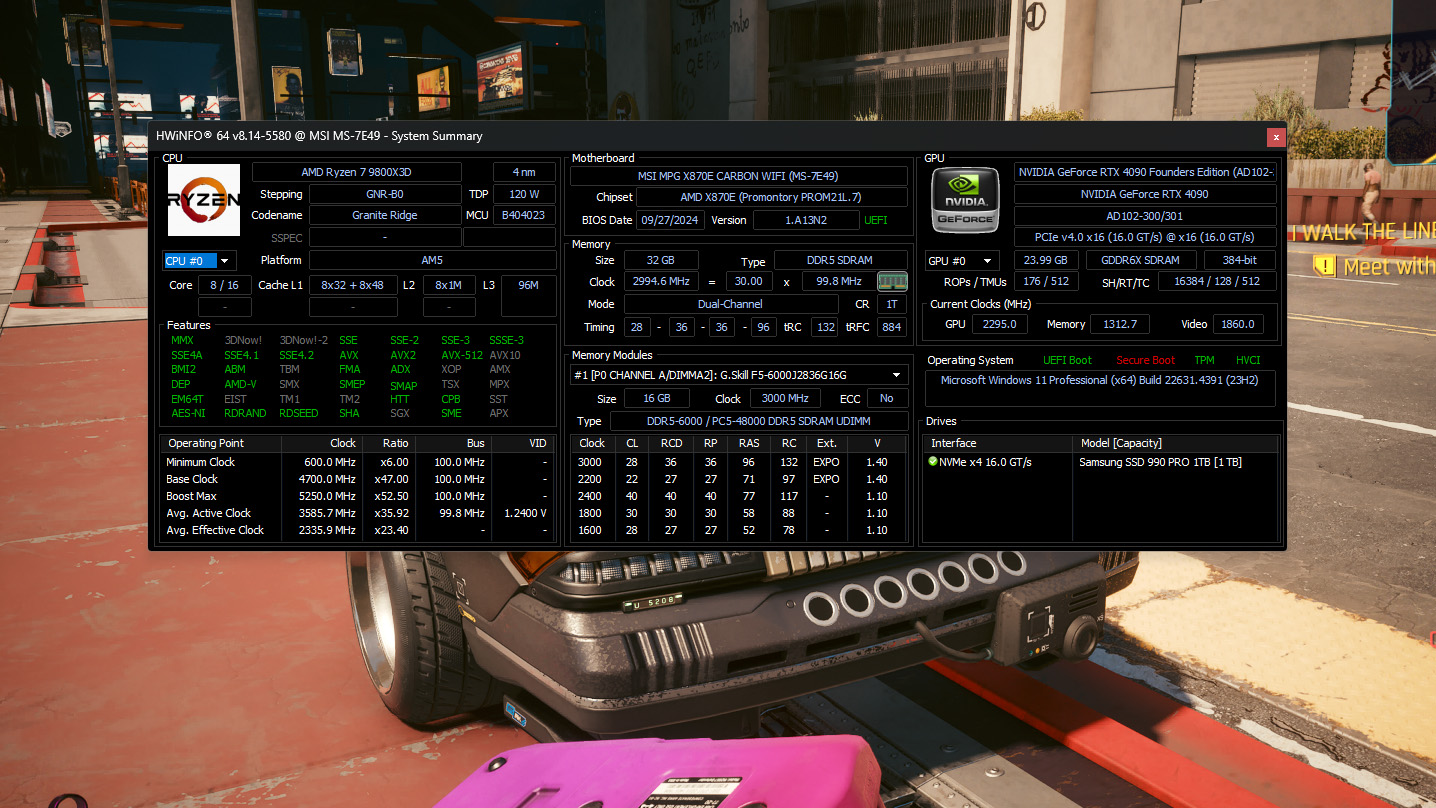
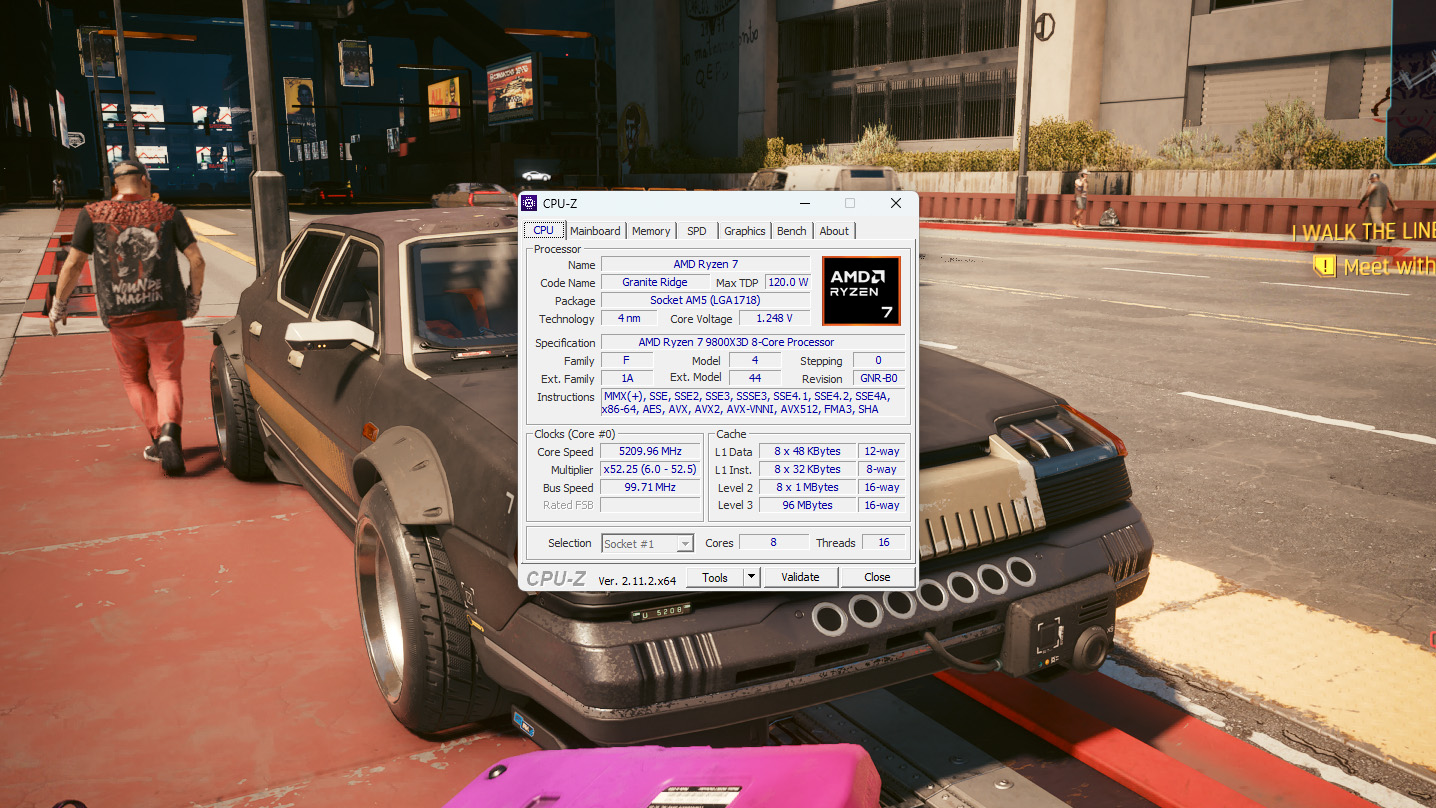
Yes, the Ryzen 7 9800X3D is the best gaming CPU you can buy, taking over from its predecessor, the Ryzen 7 7800X3D. 96MB of second-generation 3D V-Cache in the Zen 5 architecture helps push for higher FPS (frames per second) in games than Intel's top-end Core Ultra 9 285K, a rival processor that features more cores and threads, a higher clock speed, and slightly higher TDP. Ultimately, Intel's more expensive CPU offers better multi-core performance in productivity tasks and synthetic benchmarks, but AMD wins in gaming performance.
Ryzen 7 9800X3D: Competition
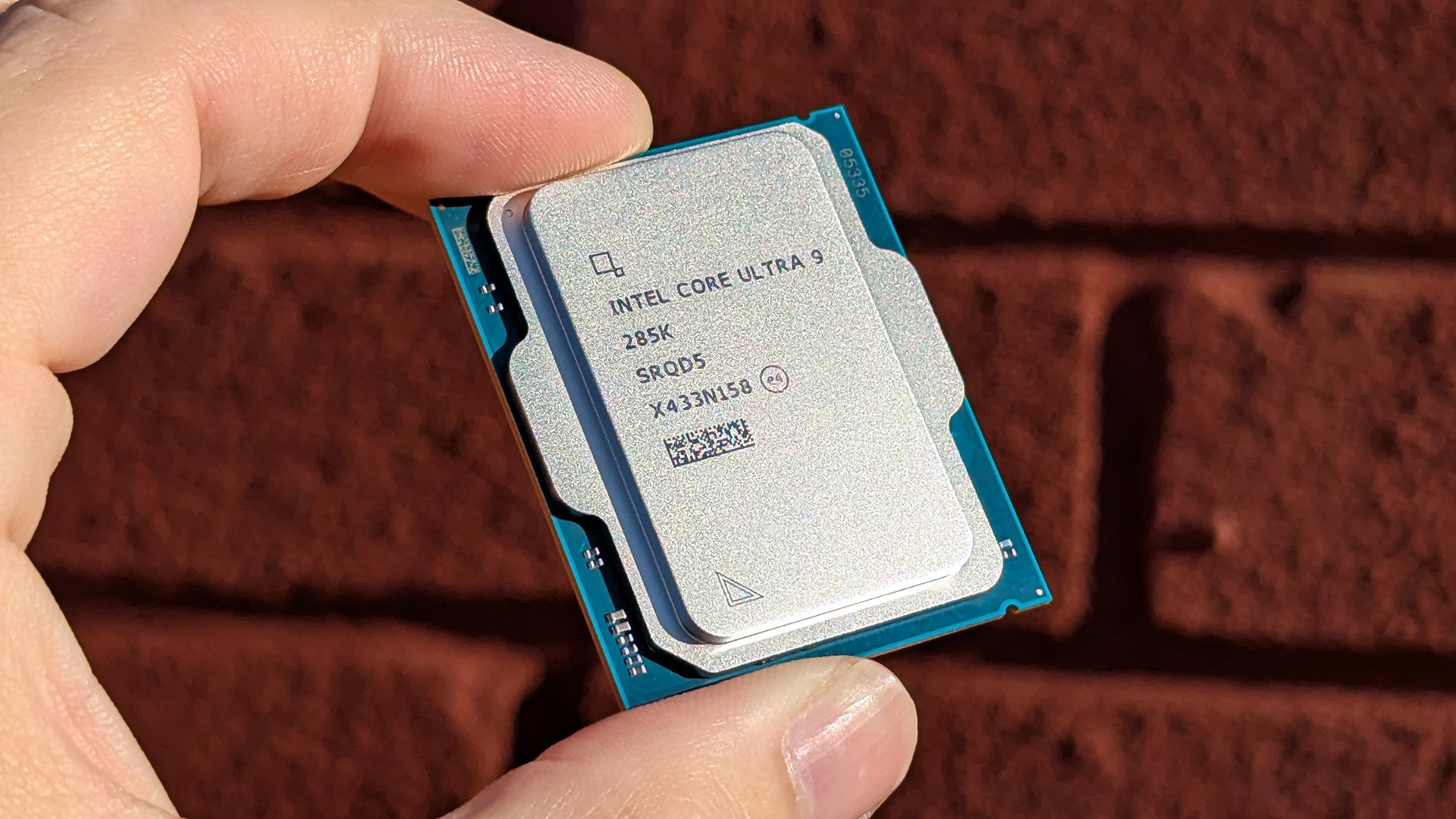
The Ryzen 7 9800X3D has three significant competitors, though only two would be taken seriously by anyone on a budget. Internally, Intel's Core Ultra 9 285K stands against AMD's gaming CPU simply because it's the most powerful chip in the latest Core Ultra Series 200S range. However, this 24-core, 24-thread carries a price tag of around $589 to $630 and targets an entirely different audience who prioritizes energy efficiency within a productivity-centric software suite.
Gaming performance on Intel's side remains relatively unchanged from its last-gen Core i9-14900K, which offered similar performance to its i9-13900K predecessor and suffered from an overarching microcode launch bug that was later fixed for the continued manufacturing of 14th Gen chips.
Still, listings for the Core i9-14900K sit around $440 as AMD's Ryzen 9800X3D is ready to launch, making it an attractive option since some of its best motherboards support an established LGA 1700 socket with wide DDR4 and DDR5 RAM support, bringing down the overall cost of a custom build.
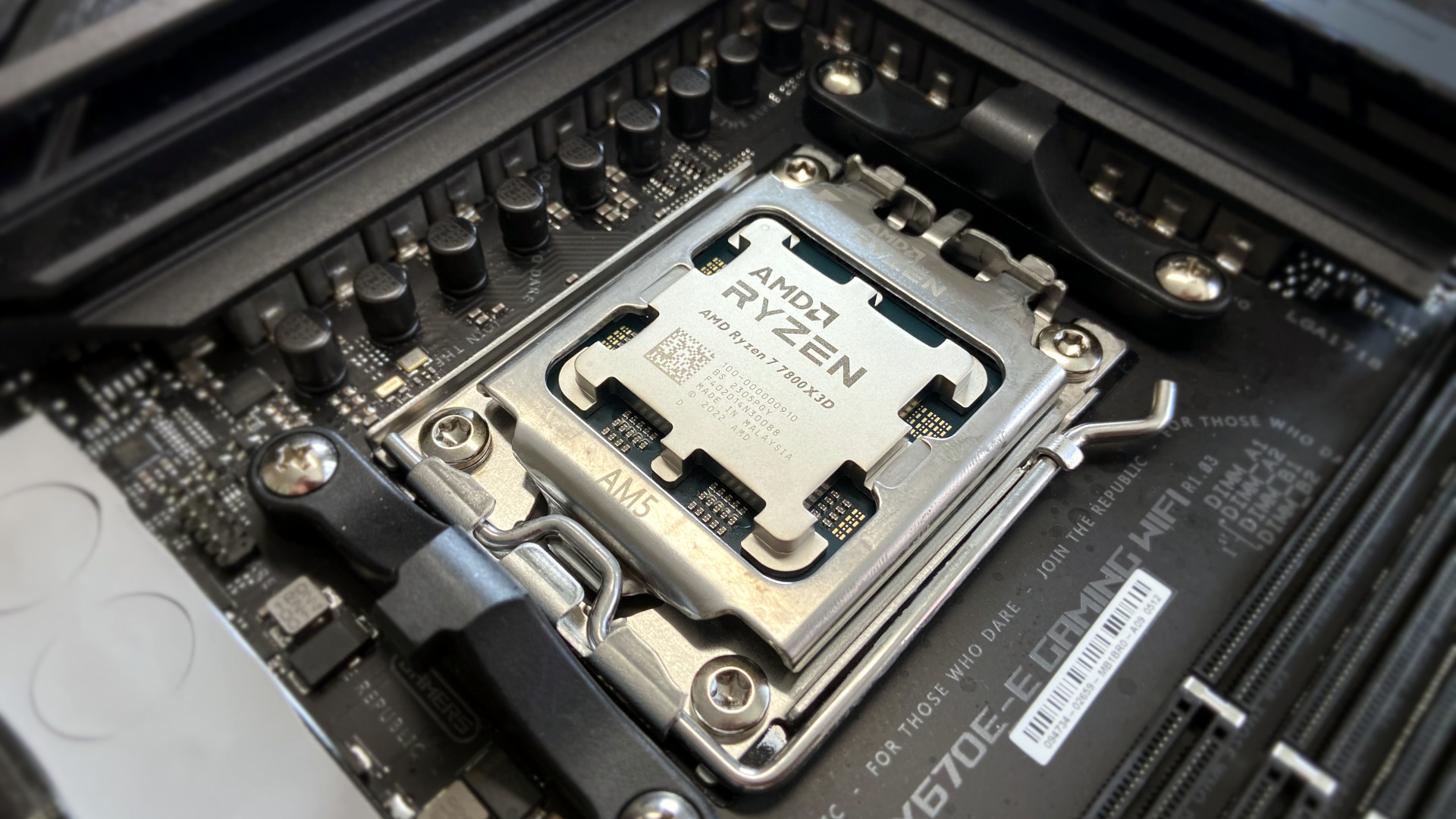
The other major competitor is a call from inside Team Red's house, as the AMD Ryzen 7 7800X3D doesn't fall far enough behind the new 9800X3D to warrant an upgrade from anyone who already has one. On the other hand, those who already adopted the AM5 socket with all-new motherboards and DDR5 RAM could happily swap out their processor for this new replacement without buying any extra components, but dropping almost $500 on an 8-22% potential performance gain isn't so tempting.
So, the Ryzen 7 9800X3D stands as a more logical upgrade path for those using a Ryzen 7 5800X3D from 2022. Still, this lumps users with the mandatory motherboard and RAM upgrades, though most AM4-compatible CPU coolers will work with AM5 replacements, so it's not entirely damaging to your budget.
The bright side is that you'll feel a more significant boost if you upgrade from the 5800X3D, with compatibility for PCIe 5.0 (Gen 5), unlocking faster storage options with the CPU bump. Overall, it's a sticky situation because the only people who will see the most significant benefits are the ones doomed to spend extra cash on a total rig overhaul.
Ryzen 7 9800X3D: Should you buy?
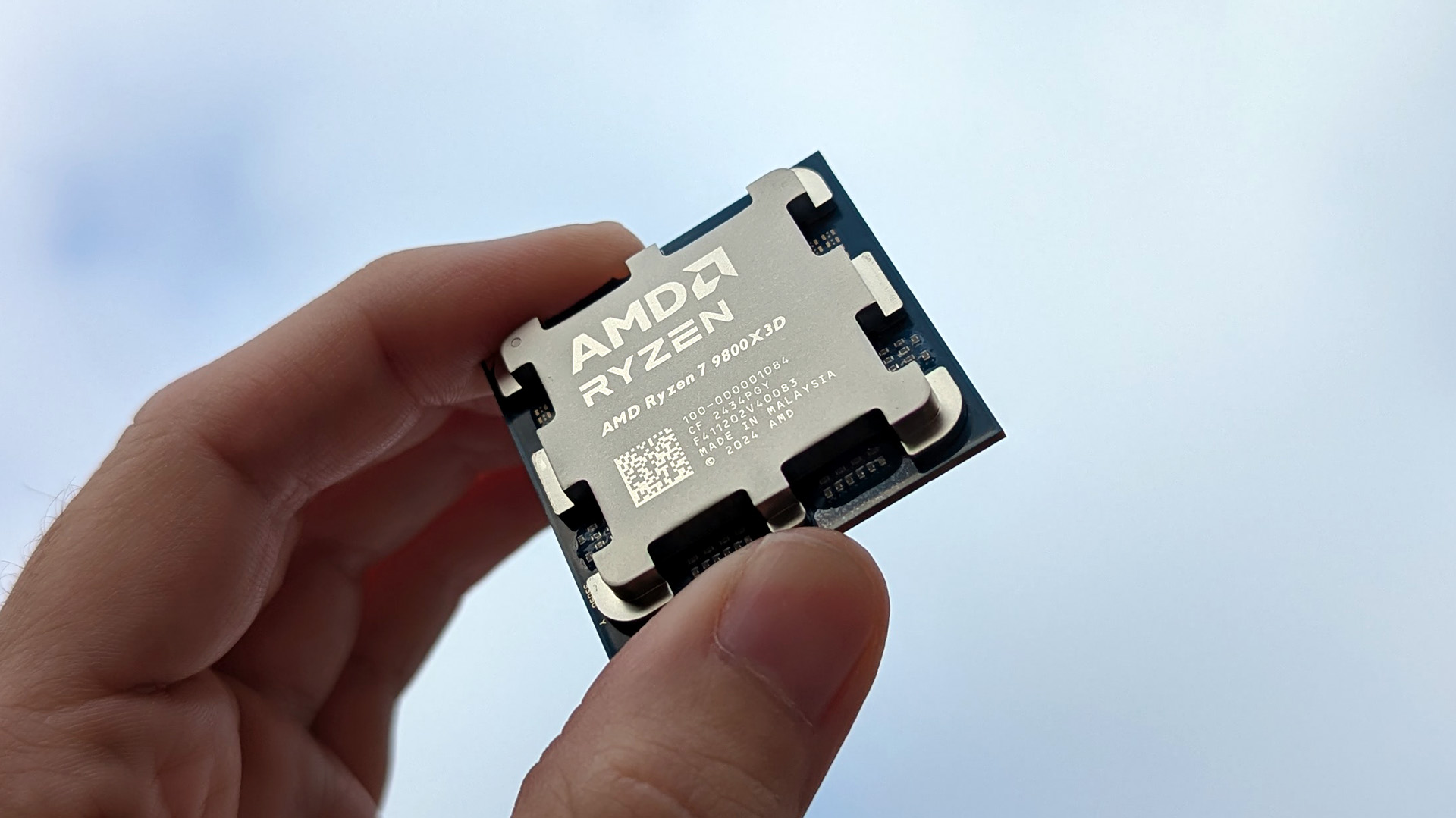
You should buy this if ...
✅ You want the absolute best gaming CPU on the market.
✅ You crave the highest framerate count possible for high-FPS gameplay.
You should not buy this if ...
❌ You're already using a Ryzen 7 7800X3D or high-end 14th Gen Core i9.
❌ You rely on productivity apps that demand the best multi-core performance.
Make no mistake: the Ryzen 7 9800X3D is the best gaming CPU, politely dethroning its predecessor as the new king of the hill as a cache-heavy monster. However, it's not winning any awards for productivity. It isn't worth installing into a PC that spends most of its time crunching numbers in Microsoft Office and Teams since the 9900X and 9950X dominate that category, but it's a far better pick for gamers than anything from Intel's modern productivity-centric offerings.
Unfortunately, those who'll benefit most will need to spend a sizeable amount of cash on a new motherboard and RAM upgrades, making the 9800X3D MSRP hike sting a little more than a cute $30. Nevertheless, this is the new meta for PC gaming, and nothing else can challenge its ability to deliver monstrous FPS counts if you can pair it with a capable GPU to enjoy the latest AAA titles loaded with visual luxuries.







